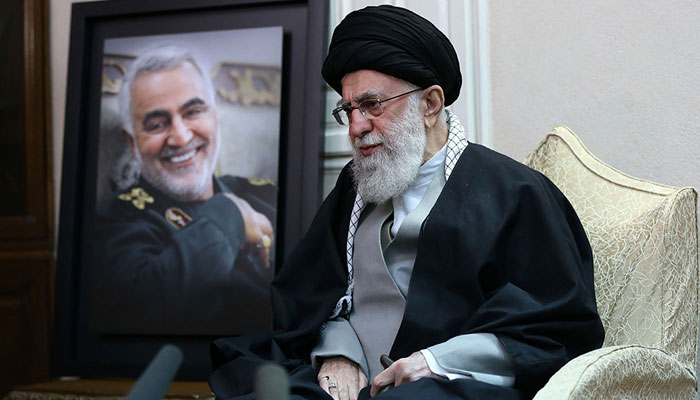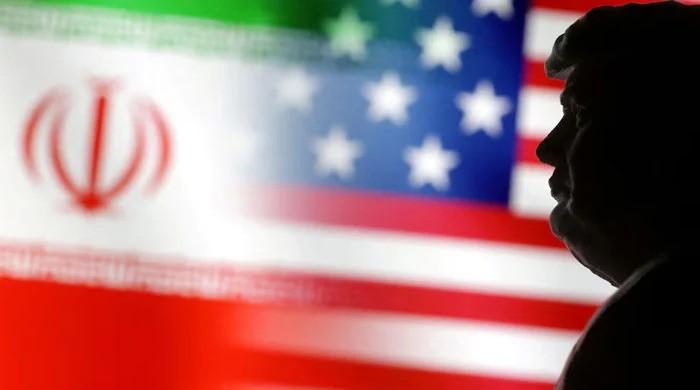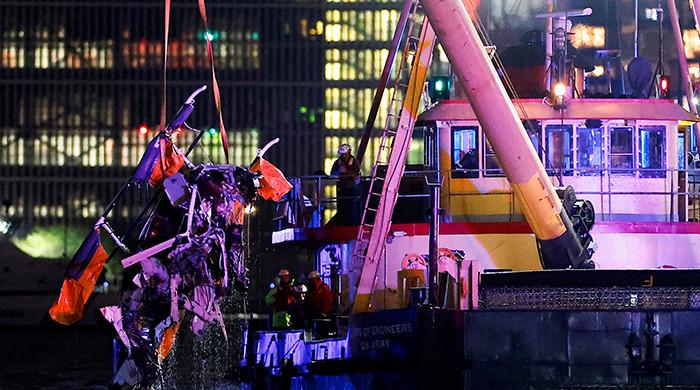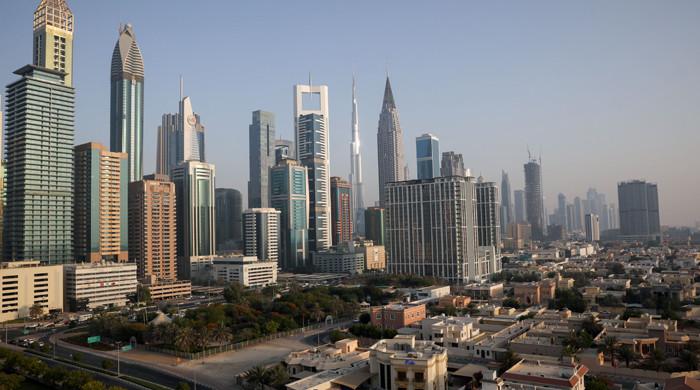New air strike targets pro-Iran convoy in Iraq ahead of Soleimani funeral
Iraqi military and the PMF itself later denied any air strikes had taken place
January 04, 2020

BAGHDAD: A fresh air strike hit pro-Iran fighters in Iraq early Saturday, as fears grew of a proxy war erupting between Washington and Tehran a day after an American drone strike killed a top Iranian general.
It came hours ahead of a planned a mourning march for Iranian Quds Force commander Qasem Soleimani and Iraqi paramilitary heavyweight Abu Mahdi al-Muhandis, slain in a precision drone strike by the US in Baghdad on Friday.
The assassination was the most dramatic escalation yet in spiralling tensions between Iran and the US, which pledged to send more troops to the region even as US President Donald Trump insisted he did not want war.
Iraq’s Popular Mobilisation Forces (PMF) had said further air strikes near camp Taji had killed six people and critically wounded three when they hit a convoy of medics.
A police source told AFP the bombardment north of Baghdad left "dead and wounded," without providing a specific toll.
But both the Iraqi military and the PMF itself later denied any air strikes had taken place in the area.
The US-led coalition fighting Islamic State also said it did not conduct any recent attacks near the camp north of Baghdad.
“FACT: the coalition ... did not conduct airstrikes near Camp Taji (north of Baghdad) in recent days,” a coalition spokesman said on Twitter.
Read also: Pakistan urges all parties to exercise 'maximum restraint'
The assassination of Soleimani, who had led the Islamic Revolutionary Guards Corps' foreign operations branch and was Iran's pointman on Iraq, rattled the region.
US officials said the 62-year-old, who had been blacklisted by the US, was killed when a drone hit his vehicle near Baghdad´s international airport.
A total of five Revolutionary Guards and five Hashed members were killed in the strike.
'Act of war'
The Iranian ambassador to the United Nations described the killing of one of his country's top generals as an act of war, US media reported late Friday.
Speaking to CNN late Friday night, Iranian ambassador Majid Takht Ravanchi said: "In fact was an act of war on the part of the United States and against Iranian people."
"Last night they (the US) started a military war by assassinating by an act of terror against one of our top generals. So what else can be expected of Iran to do? We cannot just remain silent. We have to act and we will act," he said.
"We can't just close our eyes to what happened last night. Definitely there will be revenge, a harsh revenge."
"The response for a military action is a military action. By whom, by when, where? that is for the future to witness," he ended the interview by stating.
Embassy storming
Paramilitary figures in Iraq including US-blacklisted Qais al-Khazaali and militiaman-turned-politician Moqtada Sadr called on their fighters to "be ready" after Friday´s strike.
And Lebanon's Tehran-backed Hezbollah warned of "punishment for these criminal assassins."
Soleimani had long been considered a lethal foe by US lawmakers and presidents, with Trump saying he should have been killed "many years ago."
The last straw was an attack by a pro-Iran mob on the US embassy in Baghdad this week, where demonstrators burned the entrance to the compound and besieged diplomats inside.
Read also: Top Iran commander Qassem Soleimani killed in US strike on Baghdad
Following Friday's strike, the embassy urged all American citizens to leave Iraq immediately and US nationals working at southern oil fields were being evacuated.
Analysts said the strike — which sent world oil prices soaring — would be a game-changer.
"Trump changed the rules — he wanted (Soleimani) eliminated," said Ramzy Mardini, a researcher at the US Institute of Peace.
Phillip Smyth, a US-based specialist, described the killing as "the most major decapitation strike that the US has ever pulled off."
He expected "bigger" ramifications than the 2011 operation that killed Al-Qaeda chief Osama bin Laden and the 2019 raid that killed Daesh group Abu Bakr al-Baghdadi.
But many also worried that it could spill over into full-fledged conflict between the US and Iran within Iraq.
Ties between the US and Iran have deteriorated markedly since Washington abandoned a landmark nuclear deal with Tehran in 2018 and reimposed crippling sanctions.
Iraqi premier Adel Abdel Mahdi warned the strike would "spark a devastating war in Iraq" as President Barham Saleh pleaded "voices of reason" to prevail.











